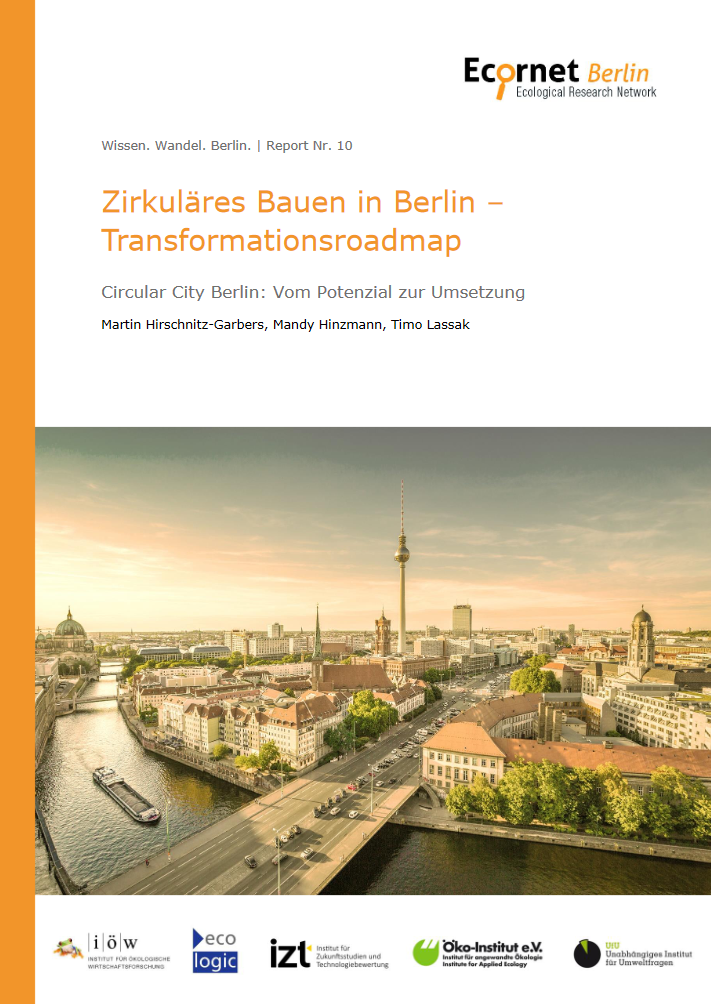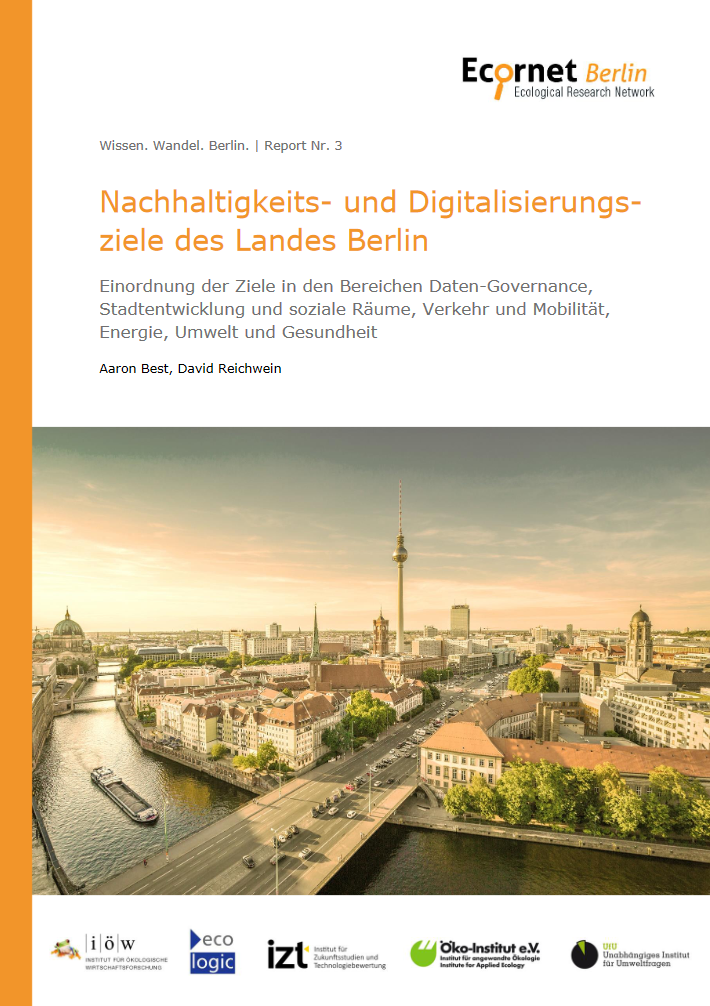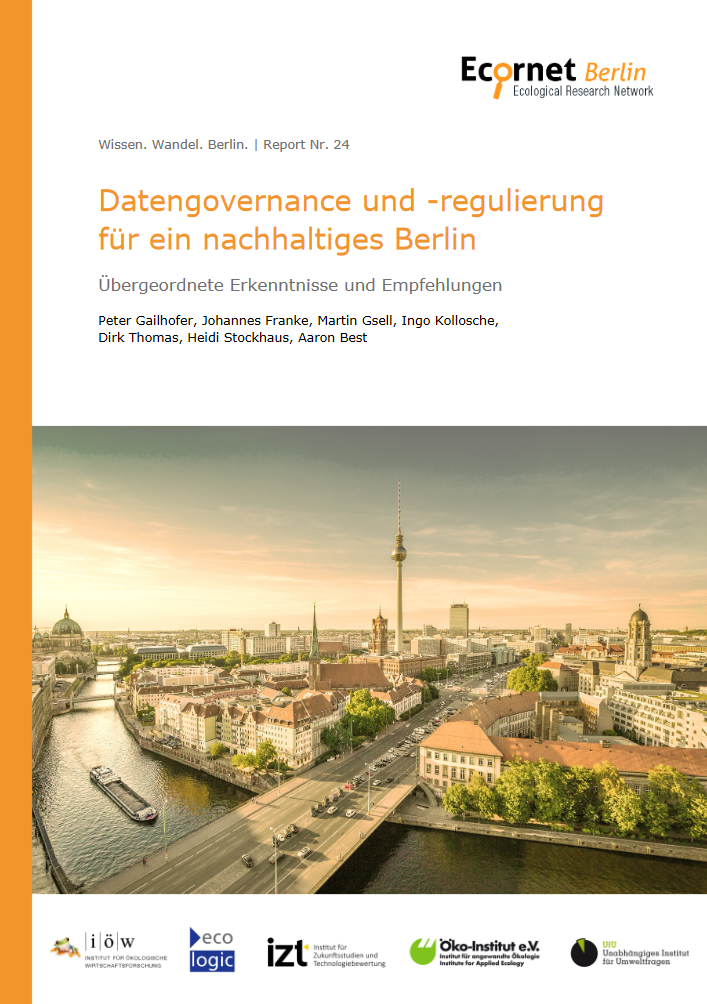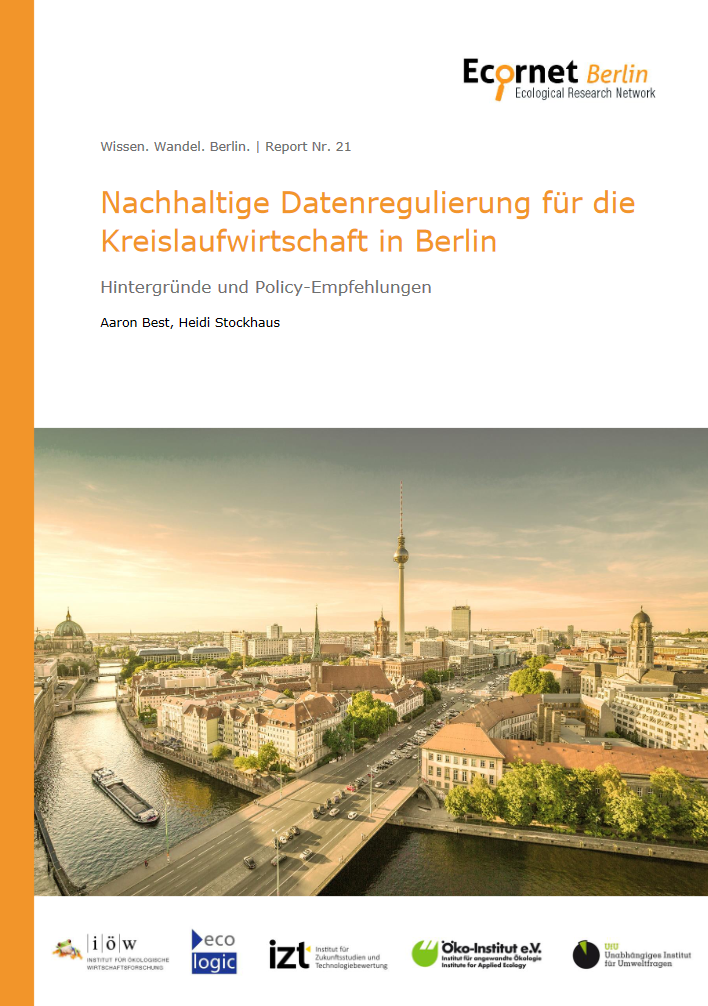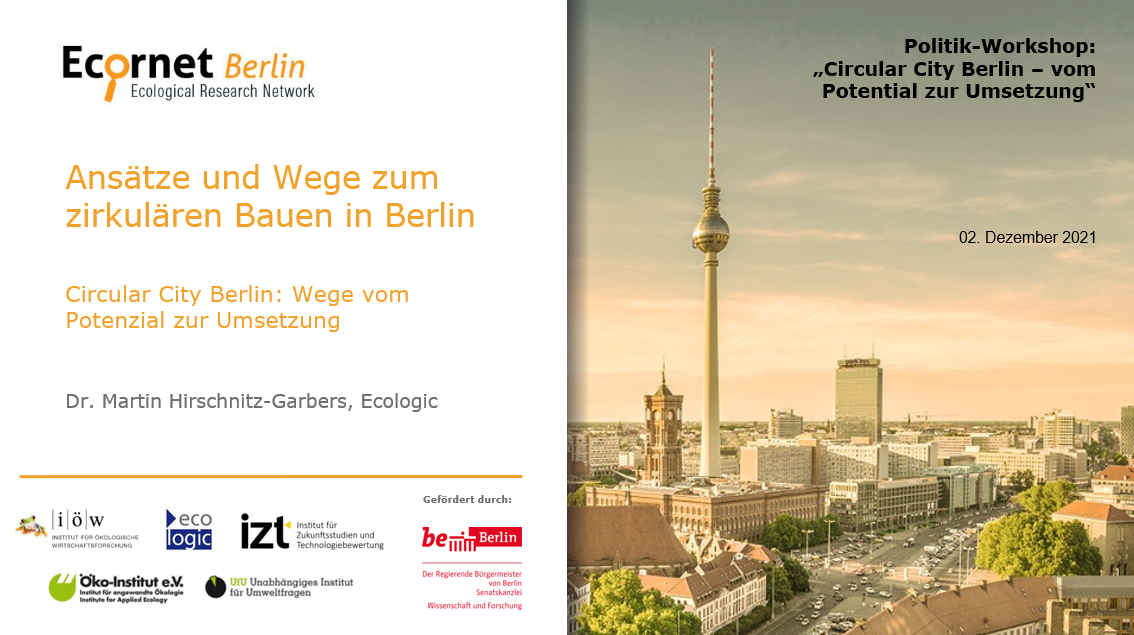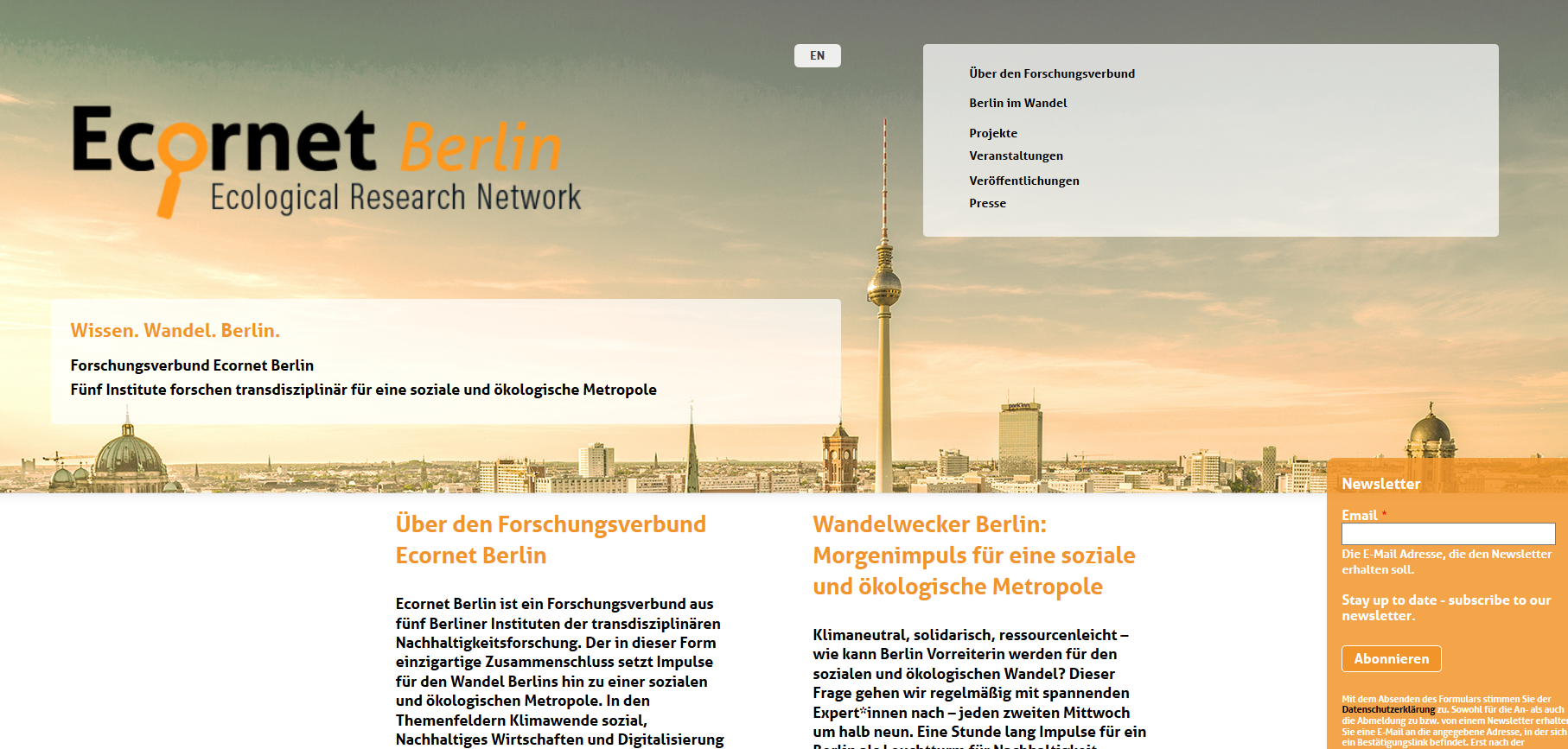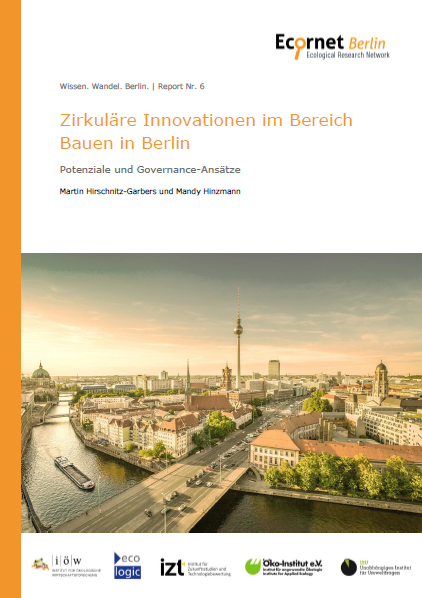The project "Circular City Berlin – from potential towards implementation (CiBER 1)" analysed and promoted innovative approaches to the circular economy in various sectors in Berlin. In view of the expected further growth, urban densification and increased economic prosperity of the metropolitan region of Berlin, a long-term sustainable design of urban resource flows is increasingly coming into focus. The corona situation complemented the focus on resilient regional and local economic processes. Local and regional circular value creation is more sustainable, increases the resilience of societies in times of crisis and strengthens social justice and inclusiveness.
Accordingly, new technologies, new business models and resource-saving forms of consumption and use become relevant here, in addition to new technologies. Implementing this requires a broad vision that addresses and connects actors from different economic and political areas and decision-making levels. In order to increase circular capacities in Berlin, start-ups as well as small and medium-sized enterprises need support in implementing their circular innovations and business models and anchoring them more broadly.
In a transdisciplinary project approach, existing offerings shall be better synchronised with existing private and public demand. To this end, the project aimed to support and help network urban actors during the transformation process, taking into account the existing policy framework for circular economy and climate neutrality as well as existing public procurement regulations. In this way, the project aimed to contribute to advancing Berlin's socio-ecological transformation and to establish Berlin as a lighthouse city for the design of sustainable urban and municipal regions in Germany and Europe. In the second funding period, measures and activities for a selected field of innovation and its transformation roadmap were tested and implemented under the conditions of a real-life laboratory. This included a more detailed sustainability assessment of the recyclable innovations and business models using empirical modeling. Ideally, further real-laboratory-based tests of all transformation roadmaps will be carried out in future funding periods in order to develop an empirically based vision for a Circular City Berlin and a Circular Society together with actors from the Berlin civil society.
Ecologic Institute was responsible for innovation mapping concerning buildings and construction as well as for conceptualising, organising and executing a policy workshop on Circular City Berlin.
The project was part of the joint project "Wissen.Wandel.Berlin: Transdisciplinary Research for a Social and Ecological Metropolis" of the research network Ecornet Berlin. The project was carried out with the financial support of the Governing Mayor, Senate Chancellery Higher Education and Research, Berlin.




